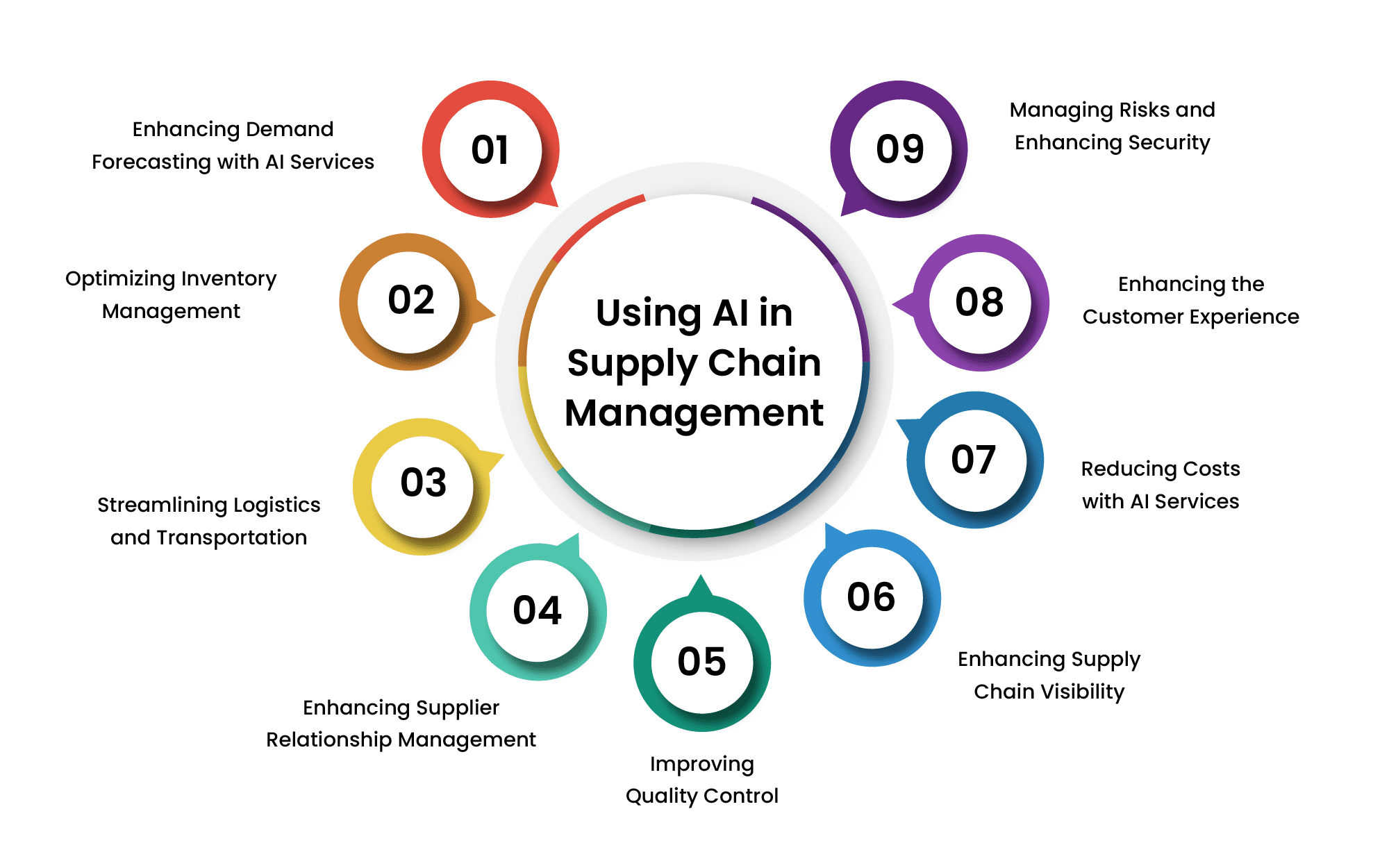




The integration of AI into enterprise workflows is not just a technological advancement but a strategic imperative for modern businesses. AI is unlocking operational leverage as companies harness the technology to create value by transforming internal workflows. AI is being used to automate repetitive tasks, enhance data analytics, improve customer service, streamline HR processes, strengthen financial management, optimize supply chains, and fortify cybersecurity. AI is also being used in accounting and marketing to revolutionize tasks like bookkeeping, tax preparation, auditing, drafting emails, visualizing data, conducting market research, and providing a positive customer experience. The use of AI within accounting can revolutionize traditionally tedious tasks. Nearly four in five chief marketing officers (CMOs) consider GenAI to be very or extremely important to providing a positive customer experience. AI can also be used in the corporate treasury function. Companies are adopting API connectivity, cloud functions, and artificial intelligence to modernize their workflows. [06e63992]
Lilia Christofi, EMEA Banking Leader at Microsoft, discusses the potential risks and benefits of implementing AI in the financial services industry at EBAday 2024. She emphasizes the need for financial institutions to lead in AI adoption to mitigate risks and shape the bank of the future. [3d5918ec]
Artificial intelligence (AI) is transforming supply chain management by enhancing demand forecasting, optimizing inventory management, streamlining logistics and transportation, improving supplier relationship management, enhancing quality control, enhancing supply chain visibility, reducing costs, enhancing the customer experience, managing risks, and enhancing security. AI services evaluate past data, market patterns, and outside variables to forecast future demand and improve inventory management. AI-enabled systems predict reorder points, analyze sales patterns, and track inventory levels to reduce maintenance expenses and prevent stockouts. AI services optimize routes for delivery vehicles based on various factors, such as weather and traffic patterns. AI helps businesses assess supplier performance, negotiate better terms, and ensure a consistent flow of components. AI automates inspections and improves quality control procedures. AI services provide real-time visibility throughout the supply chain, enabling early problem detection and better decision-making. AI lowers labor costs, optimizes resource use, and reduces waste. AI enhances customer service by maintaining product availability and providing real-time updates. AI helps in identifying and reducing risks in the supply chain. AI is a vital enabler for businesses in supply chain management. [1d217354]
The ship broking industry is being revolutionized by artificial intelligence (AI). AI offers enhancements such as data-driven insights, automation, and predictive analytics, enabling ship brokers to make more informed decisions at a faster rate. AI algorithms can analyze historical data and current market trends to provide predictive insights. AI can also provide real-time data on shipping routes and fuel consumption, automate routine tasks like document management and data entry, and improve the efficiency of the industry. However, AI cannot replace the relationship-building skills and emotional intelligence of ship brokers. Challenges include regulatory compliance and maintaining a balance between leveraging AI and preserving the human element of ship broking. The future of ship broking requires a blend of AI and emotional intelligence. Trust, expertise, and relationship-building will remain central to the industry regardless of technological advancements. [d3b8a3c7]
Stig Martin Fiska, Global Head of Cognizant Ocean, emphasizes the importance of leveraging data and AI in the shipping industry to address ongoing challenges. Shipping faces disruptions from weather, industrial action, and geopolitical incidents. AI can help predict and mitigate disruptions, improve supply chain efficiency, and support sustainability efforts. Gen AI tools can analyze past arrival information to minimize disruption and reduce carbon footprint. AI can also be used to create an effective environmental impact monitoring system and track vessels to prevent damage to oceans and biodiversity. However, trust issues with AI tools persist, and human validation is still necessary. Stakeholders in the shipping ecosystem should work together to break down information silos and improve operational insights. Implementing AI should be done step by step to reduce carbon emissions and increase efficiency in an unpredictable world. [efa628ac]
Artificial intelligence (AI) and robotics are leading transformative changes in the oil and gas sector, accelerating advancements in operational efficiency, safety, and environmental sustainability. GlobalData released a report on AI and robotics in oil and gas, featuring over 50 real-world innovations and categorizing their impact on sector use cases. The report explores emerging areas like generative AI and pipeline inspection robotics. Saurabh Daga, Project Manager for Disruptive Tech at GlobalData, emphasized that AI and robotics are fundamentally redefining what is possible in the sector, from autonomous operations to fleet optimization. However, challenges like data integration, safety regulations, and skilled labor require collaborative solutions and strategic investments in R&D. Examples of AI implementation include SLB partnering with Ineos Energy to integrate AI capabilities through SLB's Delfi digital platform, and Shell implementing generative AI technology for offshore oil drilling in collaboration with SparkCognition. Saudi Aramco is also recognized as a leader in AI innovation in various themes, such as oil exploration AI and underwater robots. [bef7188f]